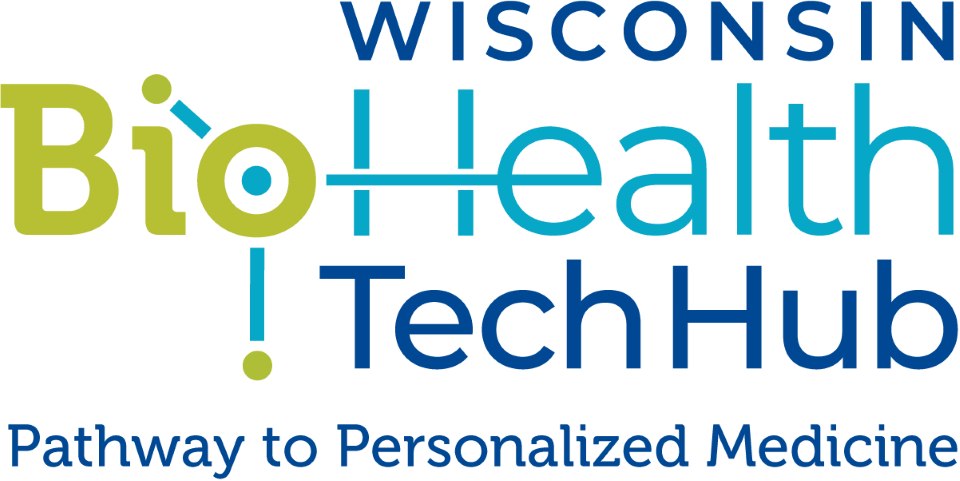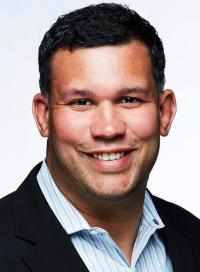
The Wisconsin Biohealth Tech Hub has moved from dream to reality.
Now Milwaukee Area Technical College and four partners will roll up their sleeves and work together to recruit and train 2,000 skilled professionals for the high-tech initiative.
On July 2, Wisconsin was selected as one of 12 regional tech hubs across the country and received $49 million in federal funding to boost the state’s personalized medicine and biohealth sectors. Personalized medicine tailors tests, treatments and therapies to patients’ unique genetic codes, medical records and environment.
MATC, along with Madison College, the University of Wisconsin System, the Workforce Development Board of South Central Wisconsin and Employ Milwaukee, Inc., will provide training and upskilling that prepares a skilled workforce to meet the industry’s demand for employees.
The effort, called the Actualizing Biohealth Career (ABC) Pathways, is one of six innovative projects being undertaken by the Biohealth Tech Hub.
"This is a groundbreaking opportunity for MATC and Wisconsin,” said MATC President Vicki J. Martin, Ph.D. "We are committed to expanding our biohealth programs and focused on equipping our diverse student body with the skills needed for careers in Wisconsin's growing Tech Hub."
The ABC Pathways project will get $14 million of the $49 million to expand the collaboration and innovation between the partners, said Mark Thomas, Madison College’s chief strategy officer and executive vice president.
“Madison College has always addressed workforce needs, and the opportunity to contribute to the Wisconsin Biohealth Tech Hub program and the emerging biohealth economy is incredibly exciting,” Thomas said. “We are eager to work with industry leaders and build on our existing collaboration with MATC and the UW System to scale our collective expertise and support the broader consortium initiatives.
“This effort will benefit Wisconsin workers and employers for years to come,” Thomas added.
ABC Pathways aims to train and place 2,000 workers in biohealth jobs in the state within five years, with 30% of them being people of color. Overall, the Tech Hub expects to create 30,000 jobs and $9 billion in economic development in Wisconsin during the next 10 years. Wisconsin biohealth sector employees earn an average wage of $96,000, substantially higher than the state’s private-sector average.
As a partner in the ABC Pathways project, MATC will provide youth career exploration, workplace learning opportunities, job readiness and career coaching programs, academic support, wraparound services, and employer engagement, recruitment and retention.
The college also plans to expand biohealth training pathways, and remove any barriers that will attract young adults, workers from other industries, and employees looking to upskill their credentials.
 "This award will strengthen MATC's innovative educational programs that equip our diverse student body with the skills needed for careers in biohealth and personalized medicine," said Sheldon Garrison, Ph.D., a part-time Science, Technology, Engineering and Mathematics (STEM) instructor at MATC since 2009.
"This award will strengthen MATC's innovative educational programs that equip our diverse student body with the skills needed for careers in biohealth and personalized medicine," said Sheldon Garrison, Ph.D., a part-time Science, Technology, Engineering and Mathematics (STEM) instructor at MATC since 2009.
“I believe MATC is critical to the success in the state’s biohealth endeavors. We’re doing things in that space that are making a real impact,” Dr. Garrison said. “MATC is well positioned to deliver the regional tech hub’s workforce, with innovative instructors and a trusted relationship with industry leaders and employers.”
In Milwaukee, MATC will work with Employ Milwaukee, Inc. and with the Workforce Development Board of South Central Wisconsin.
“Employ Milwaukee is proud to be a Biohealth Tech Hub partner,” said Julie Cayo, the organization’s interim CEO and chief planning officer. “We look forward to providing inclusive community engagement while investing in the economic prosperity of underserved populations through youth apprenticeship, summer youth employment, scholarships in Biohealth Tech Hub industry pathways, and wraparound support for our job seekers and workers.”
“This critical initiative underscores our commitment to providing real-world learning opportunities and good jobs for young people,” added Workforce Development Board of South Central Wisconsin CEO Seth Lentz. “With our consortium partners, we are ensuring that the next generation is well-equipped to excel in the rapidly evolving fields of healthcare and biotechnology while contributing to the vitality of Wisconsin’s economy.”
About Wisconsin Biohealth Tech Hub: BioForward is the lead member of a consortium of 18 Wisconsin businesses, educational institutions, civic leaders, and entrepreneurs formed to leverage Wisconsin’s cluster of biohealth assets and position the state as a global leader in personalized medicine. This group, led by the Regional Innovation Officer Wendy Harris, developed the Tech Hub framework to drive innovation and economic growth and improve global health.
About MATC: As Wisconsin’s largest technical college and one of the most diverse two-year institutions in the Midwest, Milwaukee Area Technical College is a key driver of southeastern Wisconsin’s economy and has provided innovative education in the region since 1912. More than 30,000 students per year attend the college’s four campuses and community-based sites or learn online. MATC offers affordable and accessible education and training opportunities that empower and transform lives in the community. The college offers more than 180 academic programs — many that prepare students for jobs immediately upon completion and others that provide transfer options leading to bachelor’s degrees with more than 40 four-year colleges and universities. Overwhelmingly, MATC graduates build careers and businesses in southeastern Wisconsin. The college is accredited by the Higher Learning Commission.